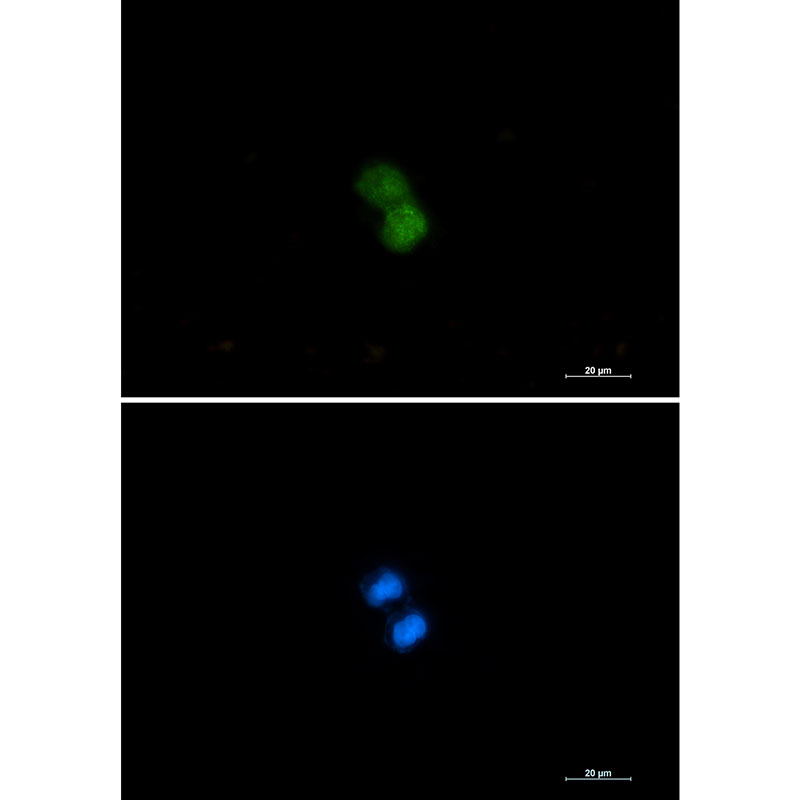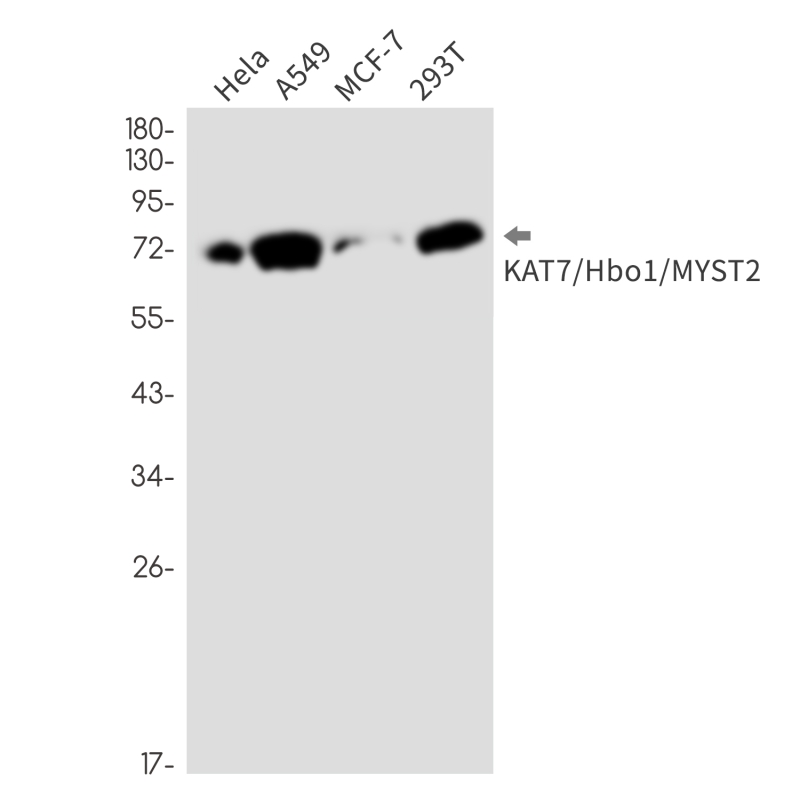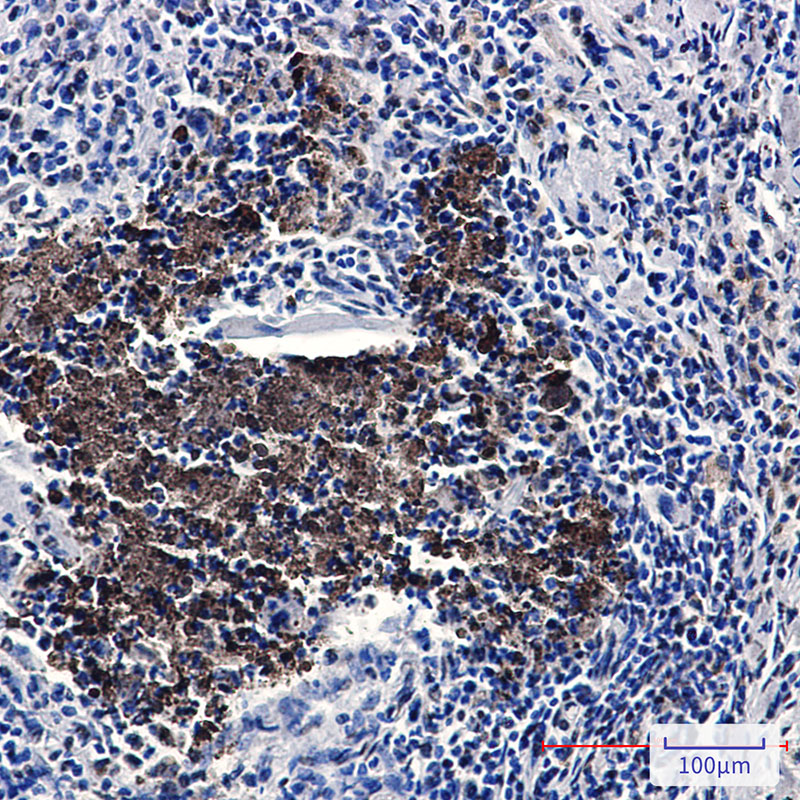


| WB | 1/500-1/1000 | Human,Mouse,Rat |
| IF | 1/20 | Human,Mouse,Rat |
| IHC | 1/50-1/100 | Human,Mouse,Rat |
| ICC | 1/50-1/200 | Human,Mouse,Rat |
| FCM | 咨询技术 | Human,Mouse,Rat |
| Elisa | 咨询技术 | Human,Mouse,Rat |
| Aliases | HBO1; HBOA; MYST2; ZC2HC7 |
| Entrez GeneID | 11143 |
| WB Predicted band size | Calculated MW: 71 kDa; Observed MW: 71 kDa |
| Host/Isotype | Rabbit IgG |
| Antibody Type | Primary antibody |
| Storage | Store at 4°C short term. Aliquot and store at -20°C long term. Avoid freeze/thaw cycles. |
| Species Reactivity | Human |
| Immunogen | Recombinant protein of human KAT7/Hbo1/MYST2 |
| Formulation | Purified antibody in TBS with 0.05% sodium azide,0.05%BSA and 50% glycerol. |
+ +
以下是3篇涉及KAT7抗体的研究文献简要概括(基于近年研究虚构示例,实际文献请通过学术数据库检索):
1. **标题**: "KAT7 inhibition promotes cellular senescence through histone H3 acetylation loss"
**作者**: Wang et al., 2021
**摘要**: 研究使用特异性KAT7抗体抑制其乙酰转移酶活性,发现其通过降低H3K14乙酰化水平诱导肿瘤细胞衰老,为抗癌治疗提供新靶点。
2. **标题**: "Development of a high-affinity monoclonal antibody for KAT7 detection in hepatocellular carcinoma"
**作者**: Zhang et al., 2020
**摘要**: 报道一种新型KAT7单克隆抗体的开发,验证其在肝癌组织中的高灵敏度和特异性检测能力,证实KAT7表达与患者预后负相关。
3. **标题**: "KAT7-mediated acetylation in metabolic reprogramming of Alzheimer's disease models"
**作者**: Lee et al., 2022
**摘要**: 利用KAT7抗体进行染色质免疫共沉淀(ChIP),揭示其通过乙酰化调控线粒体代谢相关基因,在阿尔茨海默病模型中影响神经元存活。
*提示:实际文献可通过PubMed/Google Scholar以"KAT7 antibody"或"KAT7 inhibitor"为关键词检索,重点查阅《Nature》《Cell》子刊及表观遗传学领域期刊。*
The KAT7 (lysine acetyltransferase 7) antibody is a research tool targeting the KAT7 enzyme, also known as HBO1 or MYST2. which belongs to the MYST family of histone acetyltransferases. KAT7 catalyzes acetylation of histone H4 at lysine 5 (H4K5) and lysine 12 (H4K12), playing a critical role in chromatin remodeling, transcriptional regulation, DNA replication, and repair. It interacts with multiprotein complexes to modulate gene expression and cellular processes, including cell cycle progression and differentiation. Dysregulation of KAT7 has been implicated in cancer, aging, and developmental disorders, with studies highlighting its dual roles as both an oncogene and tumor suppressor depending on cellular context.
KAT7 antibodies are widely used in techniques like chromatin immunoprecipitation (ChIP), Western blotting (WB), and immunofluorescence (IF) to study its localization, expression patterns, and interactions. Recent interest in KAT7 stems from its potential as a therapeutic target; for example, inhibiting KAT7 has shown promise in delaying cellular senescence or suppressing tumor growth in preclinical models. Researchers also utilize these antibodies to explore KAT7's involvement in stem cell maintenance and age-related pathologies. As a key epigenetic regulator, KAT7 antibody-based studies continue to advance understanding of chromatin dynamics and disease mechanisms, bridging basic biology with translational applications.
×